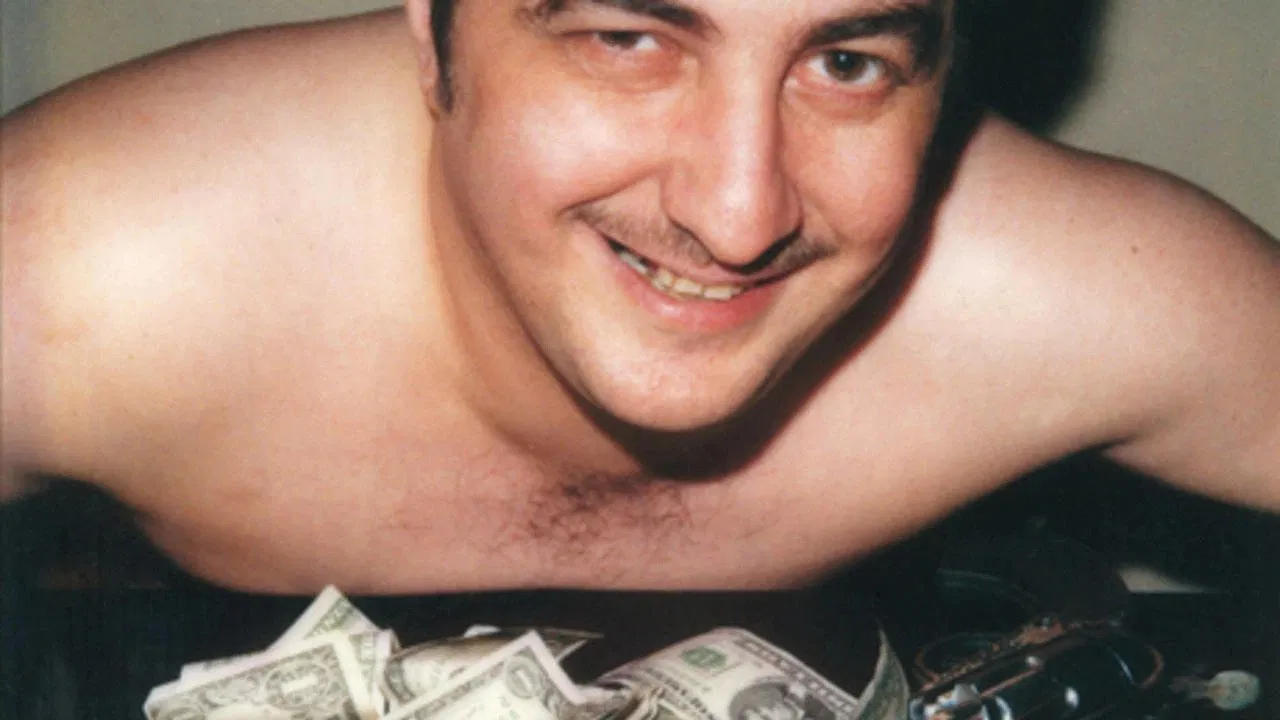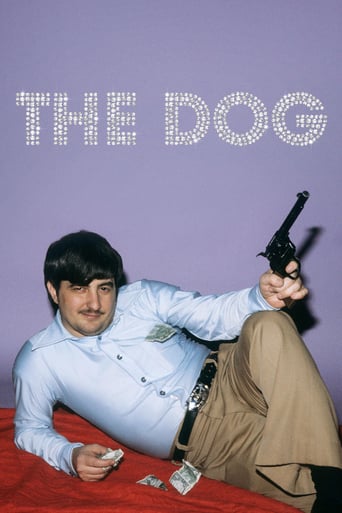

The subject of this documentary, which purports to describe the actual events behind the Al Pacino film, Dog Day Afternoon, is himself such a colossally self-absorbed, self-aggrandizing, clueless idiot, that he manages to make the fantastic story of the world's most bizarre bank robbery... incredibly boring. John Wojtowicz, who robbed a New York City bank in 1975 to pay for a sex change operation for his boyfriend, takes up 90% of the screen time in this tedious and self-serving retelling of his botched robbery, in which one of his cohorts was killed. Utterly remorseless, Wojtowicz is hard to look at, and harder to listen to. However, the newsreel scenes of a vanished New York, and the recollections of some of the New York characters who entered Wojtowicz's orbit in the course of the robbery, make this otherwise dismal and dishonest documentary worth watching. If you have not yet seen Dog Day Afternoon, I suggest you see that first. I suspect the fictionalized account in that film is a truer version than what you will hear from John Wojtowicz.
... View More"I robbed this bank." T-shirt Dog wears in front of the infamous bank.The Dog is a documentary tribute to the genius of Al Pacino. Although it's not at all about Pacino, his depiction of Brooklyn-Italian John Wojtowicz in Dog Day Afternoon, who robbed a branch bank in the summer of 1972 to fund the sex-change operation of his lover, was so spot on that, as eccentric and wild as John is, Pacino's performance was constantly on my mind.The doc, filled with repetitive declamations from John about his willingness to chew up life, is most interesting for me briefly when his first wife, Carmen, hints that John may have robbed the Brooklyn bank because of debt to the mob, not just the sex change. Wish I could have seen that back-story because the film mostly lets John ramble on.Alas, the film belongs to Republican Vietnam vet John, whose arc moves to and past his defining role in the botched robbery. While he claims to have married as many as four men, we watch him age in a manic pose, always talking, usually defending his bizarre bisexual exploits, seeming never to step out of his rebel role, fighting and eventually losing to cancer.Even prison can't dull his enthusiasm for the bizarre sexuality that has been his signature. It is the '70's after all, when the Gay Activists Alliance was born. For John, it's a chance to find partners more than sympathy with the emerging Greenwich Village Stonewall initiative. The doc pays little attention to the actual robbery (I suppose it would be futile to try to match Sydney Lumet's superb film adaptation) and chooses to emphasize Dog's bravado and his close relationship with his mother, Terry (amateur psych sleuths can already smell Oedipus if not Freud). She is one tough little lady, enduring his increasingly strange actions with a love and equanimity suggesting she could also be the subject of a doc. It's doubtful how she could be held even partially responsible for a man who robs a bank and takes hostages.Dog embodies self absorption and willful violation of civility that eventually make him much less likable than the odd Brooklyn punk he started out as. Thanks goodness for the archival news footage and Al Pacino.
... View MoreI had never heard about John Wojtowicz but thanks to the movie The Dog, I know all about this icon. The documentary has several overlapping themes: the early days of the gay movement, how John became an icon of a robin hood of sorts, and how he was a man full of love. John was his own man and even the bank robbery he was involved in did not define him. A 1975 Oscar winning movie was based on his legendary bank robber staring Al Pacino called Dog Day in Afternoon. He was a convicted bank robber but his reason was noble. He was for robbing the bank in order to raise the money needed to fund his lover's sex change operation. John admits in the movie that he is over sexed, but his commentary captures a period where free love and Vietnam War clashed. America was in an identity crisis between the conservative g-men outlook and the free love and eventual disco 70s. It is honorable that John put the interest of his love Ernest Aron (later known as Elizabeth Debbie Eden) ahead of himself and just wanted her to be happy. John risk his life and even though it turned out to be a failed robbery, eventually the notoriety helped fund the operation. John, known as "the Dog", comes across sincere and as a noble character who always tried to do the right thing and how his big heart got in the way. In the end, the Dog makes no apologies for being who he is and he sums it best in his final thoughts, "Live everyday as if it's your last and whoever doesn't like it can go fcuk themselves and a rubber duck." Don't miss a chance to get the story behind the man that inspired Al Pacino's legendary role in the Oscar Nominated Dog Day Afternoon. The Dog is Directed by Allison Berg and Frank Keraudren and set to be release in NY and LA on August 8, 2014.
... View MoreThe story of "Dog Day Afternoon" always intrigued me, since I never believed that the whole thing was true -- it didn't seem plausible that anyone like John, the "Dog" of the title, could really exist. After watching this documentary, I can say without a doubt that this person really existed, and not only that, but that he's even more entertaining in real life than Al Pacino was in the famous movie that was made about it. John is a multi-faceted, bizarre, crazy clown of a man with the most fascinating approach to gay rights ever. He is hilarious, headstrong, outspoken, a sheer nut case, and incredibly sympathetic, even heart breaking in his dedication to those he loves. His purpose in robbing the bank, to get his lover a sex-change operation, always seemed to be a plot device added to the film by the scriptwriter. Amazingly, it is all true, and even more truth is yet to come.One thing that really surprised me was the treatment of the relationship between John and his second "wife" -- Leon. John was actually married to a biological woman and had two children with her, and not only married Leon, he also married another man later in life. John was not only ahead of his time, way before gay marriage existed, he invented a new form of marriage, the likes of which would never be legal, at least in our lifetimes.In the movie "Dog Day Afternoon", John holds up the bank in order to get enough money for his lover Leon's sex change operation. I could never believe that the man played by Pacino could do such a thing, but watching John in this film, it is believable -- again, the truth here is stranger than fiction. Even John's mother actually appeared on the scene as in the movie, which also seems impossible until you meet John's real life mother. At first, John's relationship with his mother seems merely abnormal -- later, it seems like these two people deserve each other in being two sides of the same bizarre coin.Added to this is the fact that John never regrets his decision to go through with the robbery, regardless of having gone to jail and having spent a great deal of time in maximum security -- when interviewed after being captured, he still admitted that he was in love with Leon, and would have done it again if he had to do it all over again.What complicates this unbelievable sacrifice is a very candid interview when John is on a cable-access-type show, when John and Leon, (now having had the operation and transitioned into Liz), are both giving their individual perspectives, and Leon/Liz hints that there might have been another reason as to why John robbed the bank, to which John is not admitting. This opens up yet another can of worms that is never answered. It leaves a gaping hole in John's motivation for robbing the bank, and brings us back again to the essential question: how is it possible that truth can be so much stranger than fiction?
... View More